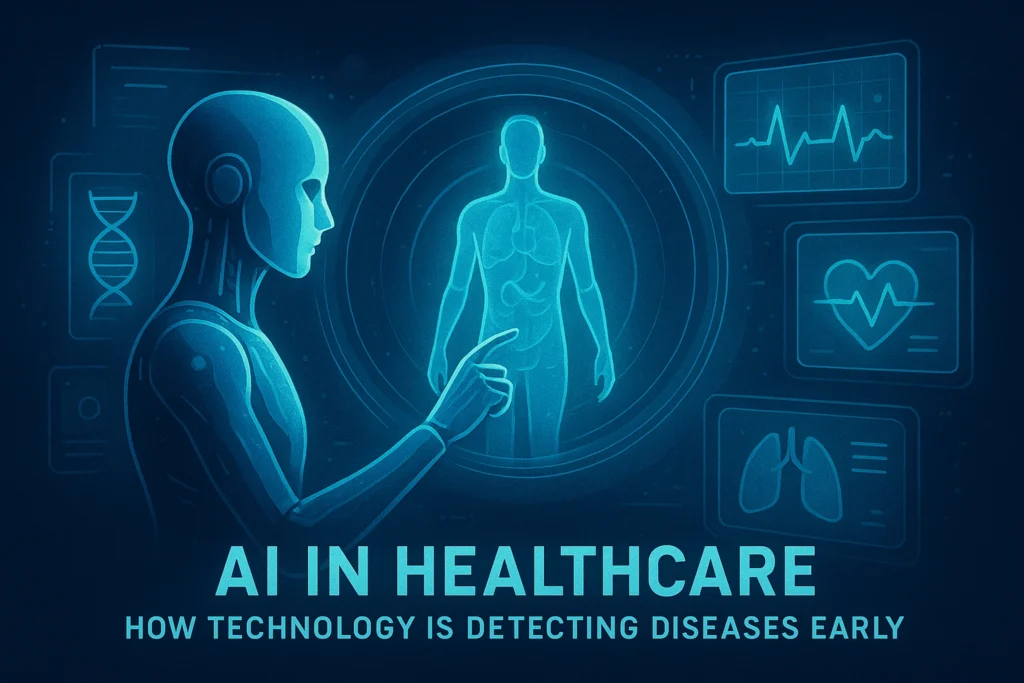
Artificial intelligence (AI) is revolutionizing healthcare, offering tools that detect diseases earlier, improve patient outcomes, and transform medical diagnostics. From chronic illnesses to rare conditions, AI algorithms are helping doctors identify health risks with unprecedented accuracy.
The Role of AI in Early Disease Detection
AI-powered technologies analyze vast amounts of medical data, including imaging scans, lab results, and electronic health records, to detect patterns humans might miss.
Oncology
In cancer care, AI identifies tumors at early stages and assists radiologists in reviewing complex imaging scans with higher precision.
Cardiology
In heart care, predictive models assess cardiovascular risk, helping prevent life-threatening conditions like heart attacks and strokes.
Genetics & Personalized Medicine
Machine learning and natural language processing (NLP) also assist in analyzing genetic data, enabling more personalized treatment plans tailored to an individual’s DNA profile.
Trends Shaping AI in Healthcare
Hospitals and clinics are increasingly adopting AI-assisted tools for screening and diagnostics.
- Detecting diabetic retinopathy from retinal scans
- Predicting sepsis onset in ICU patients
- Forecasting progression of neurodegenerative diseases like Alzheimer’s
Tech companies, healthcare providers, and research institutions are collaborating to improve data privacy, model transparency, and integration into clinical workflows.
Future Outlook: AI and the Next Era of Medicine
The future of AI in healthcare promises continuous innovation. Predictive analytics, robotics-assisted surgery, and personalized medicine will redefine patient care.
With continued investment in AI research, healthcare systems may achieve earlier interventions, faster recovery times, and more effective chronic disease management.
As AI becomes a trusted partner in medical decision-making, patients and practitioners alike will benefit from a new era where technology and human expertise converge for better health outcomes.